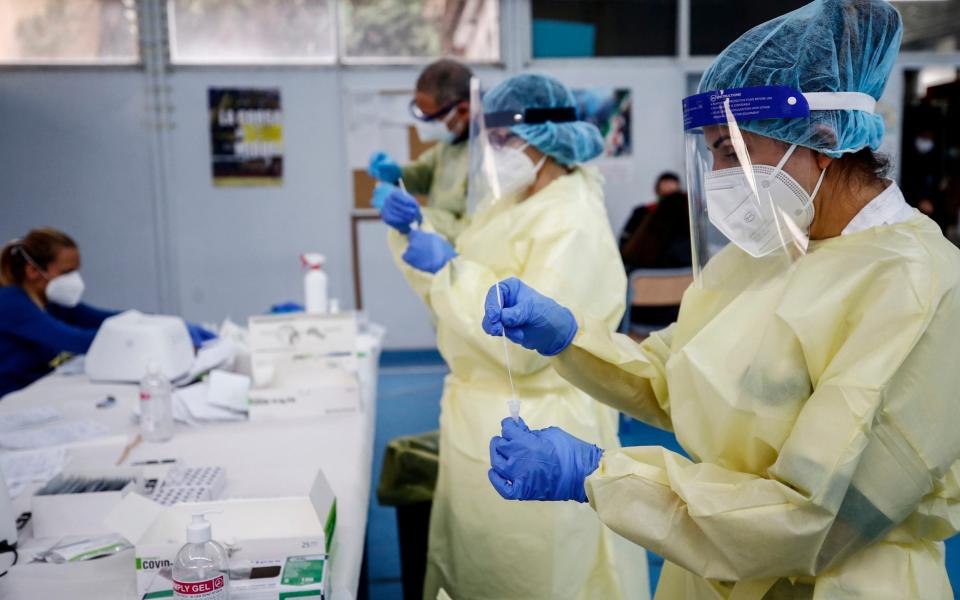More than 100 million rapid Covid tests to go to poorest countries


Tests for Covid-19 that can give results in less than an hour are to be rolled out around the world, with more than 100 million units being reserved for low and middle income countries where there is limited access to sophisticated diagnostics.
Last week the World Health Organization reached what director general Dr Tedros Adhanom Ghebreyesus described as an “important milestone” when it gave the first emergency approval for an antigen based rapid diagnostic test for Covid-19.
Dr Tedros told an online press briefing that thanks to an agreement between WHO and partners such as the Bill and Melinda Gates Foundation 120 million out of 600 million of the tests will be set aside for low and middle income countries.
Rapid diagnostics tests are available to buy online but this is the first to get WHO approval.
It came as Donald Trump announced 6.5 million rapid 15-minute tests would be shipped out to US state governors this week, rising to 100 million in the coming weeks.
The White House called it a "game changer" that could lead to the reopening of schools and colleges.
An additional 50 million tests would be deployed to protect US nursing homes.
The Abbott Laboratories tests, which involve a nasal swab, are the size of a credit card and can be administered anywhere.
Mr Trump's administration had previously announced in August the purchase of 150 million of the tests from Abbott for $750 million.
Dr Tedros said: "These tests provide reliable results in approximately 15 to 30 minutes, rather than hours or days, at a lower price with less sophisticated equipment.
“This will enable the expansion of testing, particularly in hard-to-reach areas that do not have lab facilities or enough trained health workers to carry out PCR tests."
Dr Tedros urged countries to give more money to help fund the equitable distribution of tests, drugs and vaccines to fight Covid-19. He praised his "friend Boris Johnson", who at the weekend announced that the UK would give £571m to give the poorest in the world access to vaccines and become the biggest country donor to WHO.
Volume guarantee agreements have been signed between the two manufacturers, Abbot and SD Biosensor, and the Gates Foundation to ensure that 133 low and middle income countries will be able to access the tests, which are available for about $5 per unit.
According to reports France and Germany have already placed orders for the tests but it is unclear whether the UK, which is a member of WHO’s diagnostics partnership, will sign up.
Under its Moonshot initiative the UK is hoping that rapid testing will enable the roll-out of millions of tests every week and smooth out testing bottlenecks. Two diagnostics are currently being tested in UK hospitals.
Standard PCR tests take hours and sometimes days to deliver results and require sophisticated laboratories and trained health workers.
However, rapid antigen tests are not as sensitive as PCR tests and will not detect infections in people with lower viral loads, said Jon Deeks, professor of biostatistics at the University of Birmingham and an expert on Covid-19 tests.
“The tests do not ‘amplify’ the DNA as happens in a PCR test. It means that they may miss (give false negatives) if people are tested early or late – missing the early is bad as this is when people most likely will be infectious.
“However, these tests are going to make a massive difference to low and middle income countries as they have no or little access to RT-PCR tests. So yes they will be revolutionary as this test will be better than no test which is the situation they currently have,” he said.
Protect yourself and your family by learning more about Global Health Security

